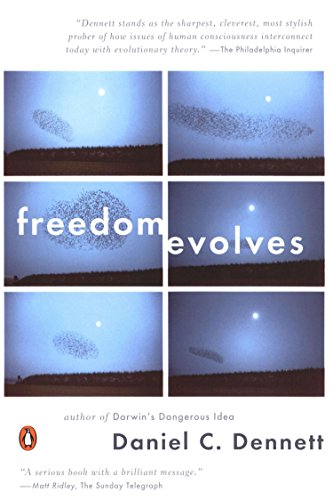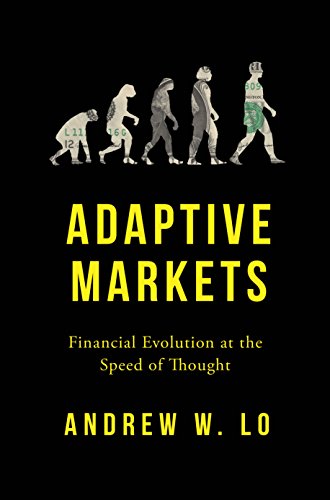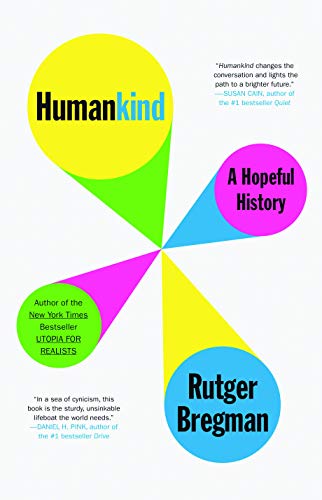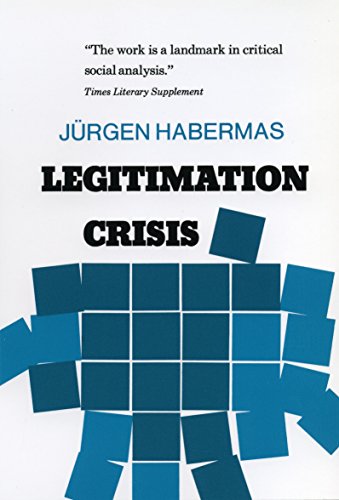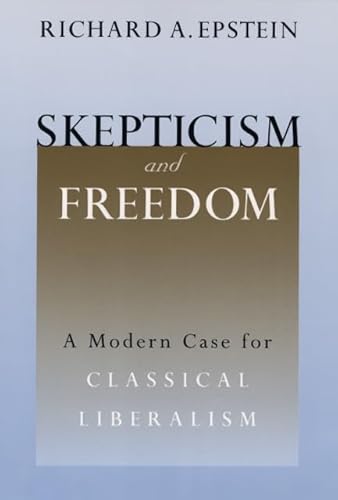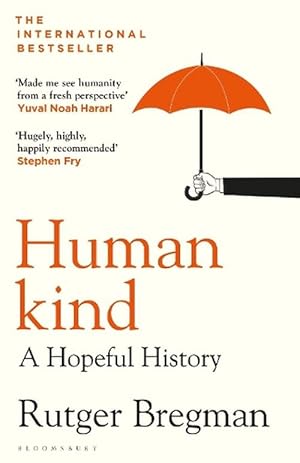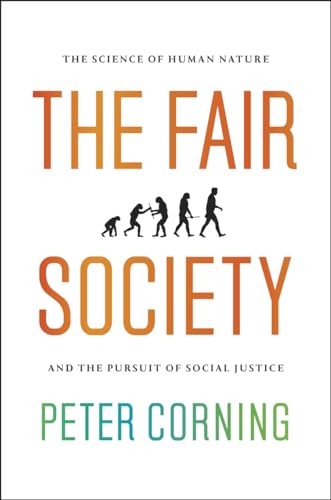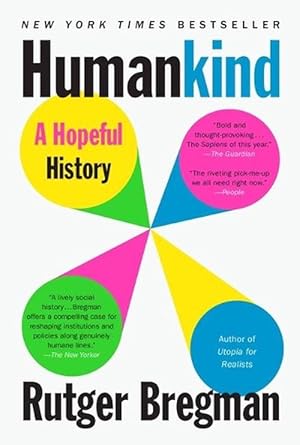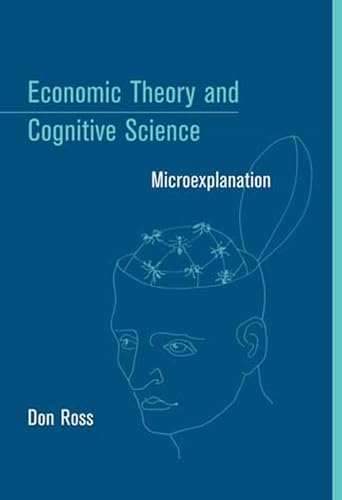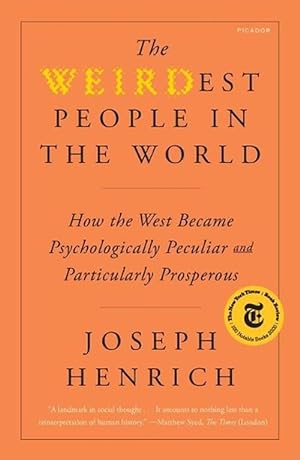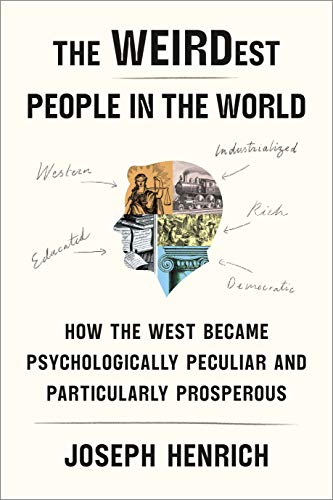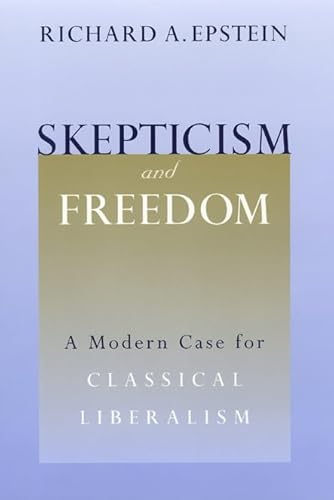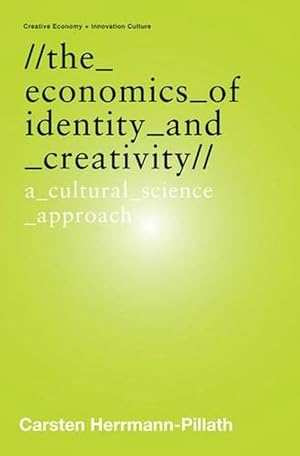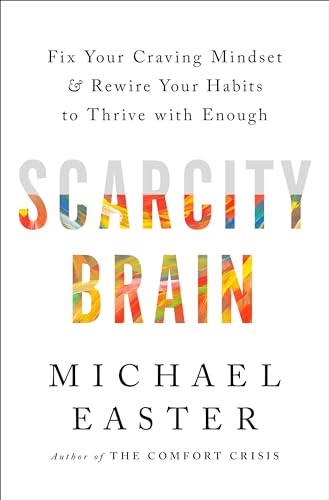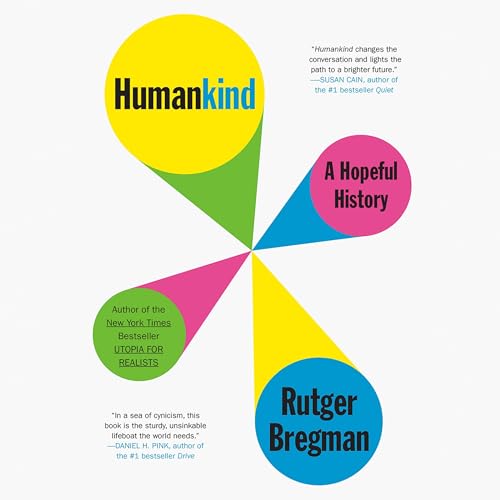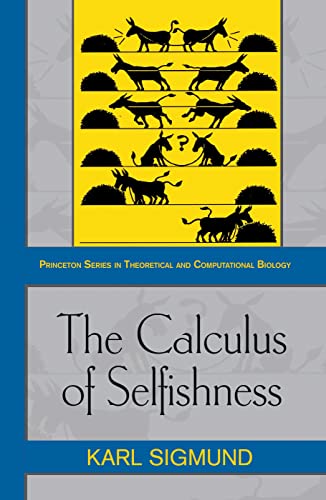The Evolutionary Foundations of Economics (544 results)
Product Type
- All Product Types
- Books (544)
- Magazines & Periodicals
- Comics
- Sheet Music
- Art, Prints & Posters
- Photographs
- Maps
- Manuscripts & Paper Collectibles
Condition
Binding
Collectible Attributes
- First Edition (23)
- Signed (1)
- Dust Jacket (5)
- Seller-Supplied Images (304)
- Not Print on Demand (415)
Free Shipping
Seller Location
Seller Rating
-
The Evolutionary Foundations of Economics
Published by Cambridge University Press, 2006
ISBN 10: 0521691311ISBN 13: 9780521691314
Seller: Better World Books, Mishawaka, IN, U.S.A.
Book
Condition: Very Good. Former library book; may include library markings. Used book that is in excellent condition. May show signs of wear or have minor defects.
More buying choices from other sellers on AbeBooks
New offers from US$ 50.86
Used offers from US$ 7.74
Also find Softcover
-
A Beautiful Math: John Nash, Game Theory, and the Modern Quest for a Code of Nature
Published by Joseph Henry Press, 2006
ISBN 10: 0309101921ISBN 13: 9780309101929
Seller: Ergodebooks, Houston, TX, U.S.A.
Book First Edition
Hardcover. Condition: Good. First Edition. Millions have seen the movie and thousands have read the book but few have fully appreciated the mathematics developed by John Nash's beautiful mind. Today Nash's beautiful math has become a universal language for research in the social sciences and has infiltrated the realms of evolutionary biology, neuroscience, and even quantum physics. John Nash won the 1994 Nobel Prize in economics for pioneering research published in the 1950s on a new branch of mathematics known as game theory. At the time of Nash's early work, game theory was briefly popular among some mathematicians and Cold War analysts. But it remained obscure until the 1970s when evolutionary biologists began applying it to their work. In the 1980s economists began to embrace game theory. Since then it has found an ever expanding repertoire of applications among a wide range of scientific disciplines. Today neuroscientists peer into game players' brains, anthropologists play games with people from primitive cultures, biologists use games to explain the evolution of human language, and mathematicians exploit games to better understand social networks. A common thread connecting much of this research is its relevance to the ancient quest for a science of human social behavior, or a Code of Nature, in the spirit of the fictional science of psychohistory described in the famous Foundation novels by the late Isaac Asimov. In A Beautiful Math, acclaimed science writer Tom Siegfried describes how game theory links the life sciences, social sciences, and physical sciences in a way that may bring Asimov's dream closer to reality.
More buying choices from other sellers on AbeBooks
New offers from US$ 29.80
Used offers from US$ 9.83
Also find Hardcover First Edition
-
Freedom Evolves
Published by Penguin Books, 2004
ISBN 10: 0142003840ISBN 13: 9780142003848
Seller: Ergodebooks, Houston, TX, U.S.A.
Book
Softcover. Condition: Good. Reprint. Can there be freedom and free will in a deterministic world? Renowned philosopher Daniel Dennett emphatically answers yes! Using an array of provocative formulations, Dennett sets out to show how we alone among the animals have evolved minds that give us free will and morality. Weaving a richly detailed narrative, Dennett explains in a series of strikingly originalarguments-drawing upon evolutionary biology, cognitive neuroscience, economics, and philosophy-that far from being an enemy of traditional explorations of freedom, morality, and meaning, the evolutionary perspective can be an indispensable ally. In Freedom Evolves, Dennett seeks to place ethics on the foundation it deserves: a realistic, naturalistic, potentially unified vision of our place in nature.
More buying choices from other sellers on AbeBooks
New offers from US$ 29.29
Used offers from US$ 9.99
Also find Softcover
-
The Elusive Transformation
Published by Princeton University Press, 1993
ISBN 10: 0691086311ISBN 13: 9780691086316
Seller: Ergodebooks, Houston, TX, U.S.A.
Book
Hardcover. Condition: Good. Review "Thought-provoking. Although the broad relationship that emerges between science and technology and international affairs is a dynamic one, Skolnikoff argues that the process of change is evolutionary rather than revolutionary. Skolnikoff is talented at weaving the argument between science and technology and international developments. Full of stimulating and informative ideas."---Margaret Sharp, Nature" . . without doubt the best general introduction available. . . . will undoubtedly be the general 'reference of choice' in technology and international affairs for years to come." - IEEE Spectrum"This book offers a very well written and thoughtful overview of the likely impacts of science and technology on international politics."---George H. Quester, American Political Science Review" . . a remarkably good review of the full range of the science and technology of international politics."---Allan Mazur, Contemporary Sociology"A volume of sweeping ambition, covering both past and contemporary trends. . . . This compact volume offers much to anyone interested in current global trends, not least to those in the scientific, engineering and medical communities. . . . With almost 40 years of intense professional involvement in this subject . . . Skolnikoff brings an extraordinary range of both scholarship and practical experience to this debate."---Rodney W. Nichols, American Scientist Product Description Eugene Skolnikoff treats the roles of science and technology across the entire range of relations among nations, including security and economic issues, environmental questions, international economic competitiveness, the spread of weapons technology, the demise of communism, the new content of dependency relations, and the demanding new problems of national and international governance. He shows how the structure and operation of the scientific and technological enterprises have interacted with international affairs to lead to the dramatic evolution of world politics experienced in this century, particularly after World War II. Review "A formidable piece of work that represents not only the results of extensive research but also the accumulated experience and wisdom of probably the country's best observer and analyst of the intersection between science and technology and international politics. There is no other work that has this breadth of coverage."-Ted Greenwood, Alfred P. Sloan Foundation From the Inside Flap "A formidable piece of work that represents not only the results of extensive research but also the accumulated experience and wisdom of probably the country's best observer and analyst of the intersection between science and technology and international politics. There is no other work that has this breadth of coverage."--Ted Greenwood, Alfred P. Sloan Foundation From the Back Cover "A formidable piece of work that represents not only the results of extensive research but also the accumulated experience and wisdom of probably the country's best observer and analyst of the intersection between science and technology and international politics. There is no other work that has this breadth of coverage."--Ted Greenwood, Alfred P. Sloan Foundation About the Author Eugene B. Skolnikoff is Professor of Political Science at the Massachusetts Institute of Technology. He has been Director of the Center for International Studies at MIT, and has served on the staff of the White House Office of Science and Technology in several administrations.
More buying choices from other sellers on AbeBooks
New offers from US$ 28.38
Used offers from US$ 10.80
Also find Hardcover
-
Adaptive Markets: Financial Evolution at the Speed of Thought
Published by Princeton University Press, 2017
ISBN 10: 0691135142ISBN 13: 9780691135144
Seller: Ergodebooks, Houston, TX, U.S.A.
Book First Edition
Hardcover. Condition: Good. First Edition. A new, evolutionary explanation of markets and investor behaviorHalf of all Americans have money in the stock market, yet economists can't agree on whether investors and markets are rational and efficient, as modern financial theory assumes, or irrational and inefficient, as behavioral economists believe-and as financial bubbles, crashes, and crises suggest. This is one of the biggest debates in economics and the value or futility of investment management and financial regulation hang on the outcome. In this groundbreaking book, Andrew Lo cuts through this debate with a new framework, the Adaptive Markets Hypothesis, in which rationality and irrationality coexist.Drawing on psychology, evolutionary biology, neuroscience, artificial intelligence, and other fields, Adaptive Markets shows that the theory of market efficiency isn't wrong but merely incomplete. When markets are unstable, investors react instinctively, creating inefficiencies for others to exploit. Lo's new paradigm explains how financial evolution shapes behavior and markets at the speed of thought-a fact revealed by swings between stability and crisis, profit and loss, and innovation and regulation.A fascinating intellectual journey filled with compelling stories, Adaptive Markets starts with the origins of market efficiency and its failures, turns to the foundations of investor behavior, and concludes with practical implications-including how hedge funds have become the Galápagos Islands of finance, what really happened in the 2008 meltdown, and how we might avoid future crises.An ambitious new answer to fundamental questions in economics, Adaptive Markets is essential reading for anyone who wants to know how markets really work.
More buying choices from other sellers on AbeBooks
New offers from US$ 29.26
Used offers from US$ 11.64
Also find Hardcover First Edition
-
Humankind: A Hopeful History
Published by Little, Brown and Company, 2020
ISBN 10: 0316418536ISBN 13: 9780316418539
Seller: Ergodebooks, Houston, TX, U.S.A.
Book
Hardcover. Condition: Good. Illustrated. AN INSTANT NEW YORK TIMES BESTSELLERThe lively (The New Yorker), convincing (Forbes), and riveting pick-me-up we all need right now (People) that proves humanity thrives in a crisis and that our innate kindness and cooperation have been the greatest factors in our long-term success as a species.If there is one belief that has united the left and the right, psychologists and philosophers, ancient thinkers and modern ones, it is the tacit assumption that humans are bad. It's a notion that drives newspaper headlines and guides the laws that shape our lives. From Machiavelli to Hobbes, Freud to Pinker, the roots of this belief have sunk deep into Western thought. Human beings, we're taught, are by nature selfish and governed primarily by self-interest.But what if it isn't true? International bestseller Rutger Bregman provides new perspective on the past 200,000 years of human history, setting out to prove that we are hardwired for kindness, geared toward cooperation rather than competition, and more inclined to trust rather than distrust one another. In fact this instinct has a firm evolutionary basis going back to the beginning of Homo sapiens.From the real-life Lord of the Flies to the solidarity in the aftermath of the Blitz, the hidden flaws in the Stanford prison experiment to the true story of twin brothers on opposite sides who helped Mandela end apartheid, Bregman shows us that believing in human generosity and collaboration isn't merely optimistic-it's realistic. Moreover, it has huge implications for how society functions. When we think the worst of people, it brings out the worst in our politics and economics. But if we believe in the reality of humanity's kindness and altruism, it will form the foundation for achieving true change in society, a case that Bregman makes convincingly with his signature wit, refreshing frankness, and memorable storytelling."The Sapiens of 2020." -The Guardian"Humankind made me see humanity from a fresh perspective." -Yuval Noah Harari, author of the #1 bestseller SapiensLonglisted for the 2021 Andrew Carnegie Medal for Excellence in NonfictionOne of the Washington Post's 50 Notable Nonfiction Works in 2020.
More buying choices from other sellers on AbeBooks
New offers from US$ 20.69
Used offers from US$ 12.20
Also find Hardcover
-
Legitimation Crisis
Published by Beacon Press, 1975
ISBN 10: 0807015210ISBN 13: 9780807015216
Seller: Ergodebooks, Houston, TX, U.S.A.
Book
Softcover. Condition: Good. 1. Critical Theory originated in the perception by a group of German Marxists after the First World War that the Marxist analysis of capitalism had become deficient both empirically and with regard to its consequences for emancipation, and much of their work has attempted to deepen and extend it in new circumstances. Yet much of this revision has been in the form of piecemeal modification. In his latest work, Habermas has returned to the study of capitalism, incorporating the distinctive modifications of the Frankfurt School into the foundations of the critique of capitalism. Drawing on both systems theory and phenomenological sociology as well as Marxism, the author distinguishes four levels of capitalist crisis - economic, rationality, legitimation, and motivational crises. In his analysis, all the Frankfurt focus on cultural, personality, and authority structures finds its place, but in a systematic framework. At the same time, in his sketch of communicative ethics as the highest stage in the internal logic of the evolution of ethical systems, the author hints at the source of a new political practice that incorporates the imperatives of evolutionary rationality.
More buying choices from other sellers on AbeBooks
New offers from US$ 29.80
Used offers from US$ 13.32
Also find Softcover
-
Skepticism and Freedom: A Modern Case for Classical Liberalism (Studies in Law and Economics)
Published by University of Chicago Press, 2004
ISBN 10: 0226213056ISBN 13: 9780226213057
Seller: Ergodebooks, Houston, TX, U.S.A.
Book
Softcover. Condition: Good. 1. With this book, Richard A. Epstein provides a spirited and systematic defense of classical liberalism against the critiques mounted against it over the past thirty years. One of the most distinguished and provocative legal scholars writing today, Epstein here explains his controversial ideas in what will quickly come to be considered one of his cornerstone works.He begins by laying out his own vision of the key principles of classical liberalism: respect for the autonomy of the individual, a strong system of private property rights, the voluntary exchange of labor and possessions, and prohibitions against force or fraud. Nonetheless, he not only recognizes but insists that state coercion is crucial to safeguarding these principles of private ordering and supplying the social infrastructure on which they depend. Within this framework, Epstein then shows why limited government is much to be preferred over the modern interventionist welfare state.Many of the modern attacks on the classical liberal system seek to undermine the moral, conceptual, cognitive, and psychological foundations on which it rests. Epstein rises to this challenge by carefully rebutting each of these objections in turn. For instance, Epstein demonstrates how our inability to judge the preferences of others means we should respect their liberty of choice regarding their own lives. And he points out the flaws in behavioral economic arguments which, overlooking strong evolutionary pressures, claim that individual preferences are unstable and that people are unable to adopt rational means to achieve their own ends. Freedom, Epstein ultimately shows, depends upon a skepticism that rightly shuns making judgments about what is best for individuals, but that also avoids the relativistic trap that all judgments about our political institutions have equal worth.A brilliant defense of classical liberalism, Skepticism and Freedom will rightly be seen as an intellectual landmark.
More buying choices from other sellers on AbeBooks
New offers from US$ 34.96
Used offers from US$ 13.35
Also find Softcover
-
Surpassing Wonder: The Invention of the Bible and the Talmuds
Published by Brand: Mcgill Queens Univ Pr, 1998
ISBN 10: 0773517812ISBN 13: 9780773517813
Seller: Ergodebooks, Houston, TX, U.S.A.
Book First Edition
Hardcover. Condition: Good. First Edition. With biting irreverence for denominational prejudices and the pretensions of academics, Akenson renews our sense of awe before these religious works. He challenges received doctrines, arguing that the ancient Jews were indeed idol worshippers and that Saint Paul did not believe in the bodily resurrection of Jesus of Nazareth or in the virgin birth. With wit, elegance, and clarity Surpassing Wonder makes the ancient Hebrew scriptures, the Christian New Testament, and the Talmuds of the Rabbis accessible to all and shows they can be understood only in relation to each other and against their specific historical settings. Akenson argues that each of the great texts must be considered as the product of a single author and thus as a religious invention ? that is, as a self-consciously formed unity rather than an anthology of disparate works. He also argues that the great inventor of the Hebrew scriptures should be credited with constructing the very concept of narrative history and thus the foundations of Western civilization. Using a rich and imagistic language that combines tractor mechanics, Winnie-the-Pooh, and architecture with analogies from astronomy, evolutionary biology, and economics, Akenson brings about nothing less than a radical reformation of how to think about the sacred texts. He restores their spiritual power through a just appreciation of the achievement of their authors while leaving readers to decide for themselves on the presence of a "guiding hand." Surpassing Wonder is a penetrating study of the historian's craft and a brilliant exposé of how theologians and biblical scholars abuse historical reasoning and evidence in their treatment of the sacred texts. Just as a previous reformation cast out the priestly intercessors, so Akenson casts the scholars out of the temple and lets readers in to see the texts anew. In so doing he reinvests religion with meaning for a contemporary world and shows us how Western civilization was created not by the Greeks of Athens or the patricians of Rome but by the desert worshippers of Yahweh.
-
Humankind (Paperback)
Published by Bloomsbury, London, 2021
ISBN 10: 1408898950ISBN 13: 9781408898956
Seller: Grand Eagle Retail, Wilmington, DE, U.S.A.
Book
Paperback. Condition: new. Paperback. It's a belief that unites the left and right, psychologists and philosophers, writers and historians. It drives the headlines that surround us and the laws that touch our lives. From Machiavelli to Hobbes, Freud to Dawkins, the roots of this belief have sunk deep into Western thought. Human beings, we're taught, are by nature selfish and governed by self-interest. Humankind makes a new argument: that it is realistic, as well as revolutionary, to assume that people are good. The instinct to cooperate rather than compete, trust rather than distrust, has an evolutionary basis going right back to the beginning of Homo sapiens. By thinking the worst of others, we bring out the worst in our politics and economics too. In this major book, internationally bestselling author Rutger Bregman takes some of the world's most famous studies and events and reframes them, providing a new perspective on the last 200,000 years of human history. From the real-life Lord of the Flies to the Blitz, a Siberian fox farm to an infamous New York murder, Stanley Milgram's Yale shock machine to the Stanford prison experiment, Bregman shows how believing in human kindness and altruism can be a new way to think and act as the foundation for achieving true change in our society. It is time for a new view of human nature. Shipping may be from multiple locations in the US or from the UK, depending on stock availability.
-
Evolutionary Dynamics and Extensive Form Games (Mit Press Series on Economic Learning and Social Evolution)
Published by The MIT Press, 2023
ISBN 10: 0262033054ISBN 13: 9780262033053
Seller: Ergodebooks, Houston, TX, U.S.A.
Book
Hardcover. Condition: Good. An analysis of standard evolutionary dynamics adapted to extensive form games.Evolutionary game theory attempts to predict individual behavior (whether of humans or other species) when interactions between individuals are modeled as a noncooperative game. Most dynamic analyses of evolutionary games are based on their normal forms, despite the fact that many interesting games are specified more naturally through their extensive forms. Because every extensive form game has a normal form representation, some theorists hold that the best way to analyze an extensive form game is simply to ignore the extensive form structure and study the game in its normal form representation. This book rejects that suggestion, arguing that a game's normal form representation often omits essential information from the perspective of dynamic evolutionary game theory.The book offers a synthesis of current knowledge about extensive form games from an evolutionary perspective, emphasizing connections between the extensive form representation and dynamic models that traditionally have been applied to biological and economic phenomena. It develops a general theory to analyze dynamically arbitrary extensive form games and applies this theory to a range of examples. It lays the foundation for the analysis of specific extensive form models of behavior and for the further theoretical study of extensive form evolutionary games.
-
Moral Sentiments And Material Interests: The Foundations of Cooperation in Economic Life (Economic Learning And Social Evolution Series)
Published by The MIT Press, 2024
ISBN 10: 0262572370ISBN 13: 9780262572378
Seller: Ergodebooks, Houston, TX, U.S.A.
Book
Softcover. Condition: Good. New Ed. Moral Sentiments and Material Interests presents an innovative synthesis of research in different disciplines to argue that cooperation stems not from the stereotypical selfish agent acting out of disguised self-interest but from the presence of "strong reciprocators" in a social group.Presenting an overview of research in economics, anthropology, evolutionary and human biology, social psychology, and sociology, the book deals with both the theoretical foundations and the policy implications of this explanation for cooperation. Chapter authors in the remaining parts of the book discuss the behavioral ecology of cooperation in humans and nonhuman primates, modeling and testing strong reciprocity in economic scenarios, and reciprocity and social policy. The evidence for strong reciprocity in the book includes experiments using the famous Ultimatum Game (in which two players must agree on how to split a certain amount of money or they both get nothing).
-
The Fair Society: The Science of Human Nature and the Pursuit of Social Justice
Published by University Of Chicago Press, 2011
ISBN 10: 0226116271ISBN 13: 9780226116273
Book
Hardcover. Condition: Good. We've been told, again & again, that life is unfair. But what if we're wrong simply to resign ourselves to this situation? What if we have the power--and more, the duty--to change society for the better? We do. And our very nature inclines us to do so. That's the provocative argument Peter Corning makes in this book. Drawing on the evidence from our evolutionary history & the emergent science of human nature, Corning shows that we have an innate sense of fairness. While these impulses can easily be subverted by greed & demagoguery, they can also be harnessed for good. Corning brings together the latest findings from the behavioral & biological sciences to help us understand how to move beyond the Madoffs & Enrons in our midst in order to lay the foundation for a new social contract--a Biosocial Contract built on a deep understanding of human nature & a commitment to fairness. He then proposes a sweeping set of economic & political reforms based on three principles of fairness--that together could transform our society & our world.
-
The Man from the Future (Paperback)
Published by WW Norton & Co, New York, 2023
ISBN 10: 1324050500ISBN 13: 9781324050506
Seller: Grand Eagle Retail, Wilmington, DE, U.S.A.
Book
Paperback. Condition: new. Paperback. The smartphones in our pockets and computers like brains. The vagaries of game theory and evolutionary biology. Nuclear weapons and self-replicating spacecrafts. All bear the fingerprints of one remarkable, yet largely overlooked, man: John von Neumann. Born in Budapest at the turn of the century, von Neumann is one of the most influential scientists to have ever lived. A child prodigy, he mastered calculus by the age of eight, and in high school made lasting contributions to mathematics. In Germany, where he helped lay the foundations of quantum mechanics, and later at Princeton, von Neumanns colleagues believed he had the fastest brain on the planetbar none. He was instrumental in the Manhattan Project and the design of the atom bomb; he helped formulate the bedrock of Cold War geopolitics and modern economic theory; he created the first ever programmable digital computer; he prophesized the potential of nanotechnology; and, from his deathbed, he expounded on the limits of brains and computersand how they might be overcome. Taking us on an astonishing journey, Ananyo Bhattacharya explores how a combination of genius and unique historical circumstance allowed a single man to sweep through a stunningly diverse array of fields, sparking revolutions wherever he went. The Man from the Future is an insightful and thrilling intellectual biography of the visionary thinker who shaped our century. A Scientific American 2023 Staff Recommendation An electrifying biography of one of the most extraordinary scientists of the twentieth century and the world he made. Shipping may be from multiple locations in the US or from the UK, depending on stock availability.
-
The Weirdest People in the World (Paperback)
Published by Penguin Books Ltd, London, 2021
ISBN 10: 0141976217ISBN 13: 9780141976211
Seller: Grand Eagle Retail, Wilmington, DE, U.S.A.
Book
Paperback. Condition: new. Paperback. An exhilarating account of how psychology, culture and institutions co-evolved to produce the Western mindDo you identify yourself by your profession or achievements, rather than your family network? Do you cultivate your unique attributes and personal goals? If so, perhaps you are WEIRD- raised in a society that is Western, Educated, Industrialized, Rich and Democratic. Unlike most who have ever lived, WEIRD people are highly individualistic, nonconformist, analytical and control-oriented. Joseph Henrich, who developed the game-changing concept of WEIRD, draws on leading-edge research in anthropology, psychology, economics and evolutionary biology to explore how changing family structures, marriage practices and religious beliefs since the Middle Ages shaped the Western mind, laying the foundations for the world we know today. Shipping may be from multiple locations in the US or from the UK, depending on stock availability.
More buying choices from other sellers on AbeBooks
New offers from US$ 22.30
Used offers from US$ 19.47
Also find Softcover
-
Humankind (Paperback)
Published by Little Brown and Company, 2021
ISBN 10: 0316418528ISBN 13: 9780316418522
Seller: Grand Eagle Retail, Wilmington, DE, U.S.A.
Book
Paperback. Condition: new. Paperback. AN INSTANT NEW YORK TIMES BESTSELLER The "lively" (The New Yorker), "convincing" (Forbes), and "riveting pick-me-up we all need right now" (People) that proves humanity thrives in a crisis and that our innate kindness and cooperation have been the greatest factors in our long-term success as a species. If there is one belief that has united the left and the right, psychologists and philosophers, ancient thinkers and modern ones, it is the tacit assumption that humans are bad. It's a notion that drives newspaper headlines and guides the laws that shape our lives. From Machiavelli to Hobbes, Freud to Pinker, the roots of this belief have sunk deep into Western thought. Human beings, we're taught, are by nature selfish and governed primarily by self-interest. But what if it isn't true? International bestseller Rutger Bregman provides new perspective on the past 200,000 years of human history, setting out to prove that we are hardwired for kindness, geared toward cooperation rather than competition, and more inclined to trust rather than distrust one another. In fact this instinct has a firm evolutionary basis going back to the beginning of Homo sapiens. From the real-life Lord of the Flies to the solidarity in the aftermath of the Blitz, the hidden flaws in the Stanford prison experiment to the true story of twin brothers on opposite sides who helped Mandela end apartheid, Bregman shows us that believing in human generosity and collaboration isn't merely optimistic--it's realistic. Moreover, it has huge implications for how society functions. When we think the worst of people, it brings out the worst in our politics and economics. But if we believe in the reality of humanity's kindness and altruism, it will form the foundation for achieving true change in society, a case that Bregman makes convincingly with his signature wit, refreshing frankness, and memorable storytelling. "The Sapiens of 2020." --The Guardian "Humankind made me see humanity from a fresh perspective." --Yuval Noah Harari, author of the #1 bestseller Sapiens Longlisted for the 2021 Andrew Carnegie Medal for Excellence in Nonfiction One of the Washington Post's 50 Notable Nonfiction Works in 2020 Shipping may be from multiple locations in the US or from the UK, depending on stock availability.
More buying choices from other sellers on AbeBooks
New offers from US$ 22.44
Also find Softcover First Edition
-
Economic Theory and Cognitive Science: Microexplanation (Bradford Books)
Published by Bradford Book, 2007
ISBN 10: 0262681684ISBN 13: 9780262681681
Seller: Ergodebooks, Houston, TX, U.S.A.
Book
Softcover. Condition: Good. 1. In this study, Don Ross explores the relationship of economics to other branches of behavioral science, asking, in the course of his analysis, under what interpretation economics is a sound empirical science. The book explores the relationships between economic theory and the theoretical foundations of related disciplines that are relevant to the day-to-day work of economics-the cognitive and behavioral sciences. It asks whether the increasingly sophisticated techniques of microeconomic analysis have revealed any deep empirical regularities-whether technical improvement represents improvement in any other sense. Casting Daniel Dennett and Kenneth Binmore as its intellectual heroes, the book proposes a comprehensive model of economic theory that, Ross argues, does not supplant, but recovers the core neoclassical insights, and counters the caricaturish conception of neoclassicism so derided by advocates of behavioral or evolutionary economics.Because he approaches his topic from the viewpoint of the philosophy of science, Ross devotes one chapter to the philosophical theory and terminology on which his argument depends and another to related philosophical issues. Two chapters provide the theoretical background in economics, one covering developments in neoclassical microeconomics and the other treating behavioral and experimental economics and evolutionary game theory. The three chapters at the heart of the argument then apply theses from the philosophy of cognitive science to foundational problems for economic theory. In these chapters, economists will find a genuinely new way of thinking about the implications of cognitive science for economics, and cognitive scientists will find in economic behavior, a new testing site for the explanations of cognitive science.
-
The Weirdest People in the World (Paperback)
Published by Picador USA, 2021
ISBN 10: 1250800072ISBN 13: 9781250800077
Seller: Grand Eagle Retail, Wilmington, DE, U.S.A.
Book
Paperback. Condition: new. Paperback. A New York Times Notable Book of 2020A Bloomberg Best Non-Fiction Book of 2020A Behavioral Scientist Notable Book of 2020A Human Behavior & Evolution Society Must-Read Popular Evolution Book of 2020A bold, epic account of how the co-evolution of psychology and culture created the peculiar Western mind that has profoundly shaped the modern world. Perhaps you are WEIRD: raised in a society that is Western, Educated, Industrialized, Rich, and Democratic. If so, you're rather psychologically peculiar. Unlike much of the world today, and most people who have ever lived, WEIRD people are highly individualistic, self-obsessed, control-oriented, nonconformist, and analytical. They focus on themselves--their attributes, accomplishments, and aspirations--over their relationships and social roles. How did WEIRD populations become so psychologically distinct? What role did these psychological differences play in the industrial revolution and the global expansion of Europe during the last few centuries? In The WEIRDest People in the World, Joseph Henrich draws on cutting-edge research in anthropology, psychology, economics, and evolutionary biology to explore these questions and more. He illuminates the origins and evolution of family structures, marriage, and religion, and the profound impact these cultural transformations had on human psychology. Mapping these shifts through ancient history and late antiquity, Henrich reveals that the most fundamental institutions of kinship and marriage changed dramatically under pressure from the Roman Catholic Church. It was these changes that gave rise to the WEIRD psychology that would coevolve with impersonal markets, occupational specialization, and free competition--laying the foundation for the modern world. Provocative and engaging in both its broad scope and its surprising details, The WEIRDest People in the World explores how culture, institutions, and psychology shape one another, and explains what this means for both our most personal sense of who we are as individuals and also the large-scale social, political, and economic forces that drive human history. Includes black-and-white illustrations. "Harvard University's Joseph Henrich, Chair of the Department of Human Evolutionary Biology, delivers [an] . investigation into the development of the Western mind, global psychological diversity, and its impact on the world"-- Shipping may be from multiple locations in the US or from the UK, depending on stock availability.
-
Evolutionary Economics Foundations of Institutional Thought, Institutional Theory and Policy
Published by M E Sharpe Inc, 1988
ISBN 10: 0873324838ISBN 13: 9780873324830
Seller: Rain Dog Books, Bloomington, IL, U.S.A.
Book
Hardcover. Condition: Fine. 8vo. 508 pp. Two volumes. We specialize in fine books in collectible condition. Orders are professionaly packaged and shipped promptly. W13.
-
The Ascent of Humanity (Paperback)
Published by North Atlantic Books,U.S., Berkeley, 2013
ISBN 10: 1583945350ISBN 13: 9781583945353
Seller: Grand Eagle Retail, Wilmington, DE, U.S.A.
Book
Paperback. Condition: new. Paperback. The author of The More Beautiful World Our Hearts Know Is Possible explores the history and potential future of civilization, tracing the converging crises of our age to the illusion of the separate selfOur disconnection from one another and the natural world has mislaid the foundations of science, religion, money, technology, economics, medicine, and education as we know them. It has fired our near-pathological pursuit of technological Utopias even as we push ourselves and our planet to the brink of collapse.Fortunately, an Age of Reunion is emerging out of the birth pangs of an earth in crisis. Our journey of separation hasn't been a terrible mistake but an evolutionary process and an adventure in self-discovery.Even in our darkest hour, Eisenstein sees the possibility of a more beautiful world-not through the extension of millennia-old methods of management and control but by fundamentally reimagining ourselves and our systems. We must shift away from our Babelian efforts to build ever-higher towers to heaven and instead turn out attention to creating a new kind of civilization-one designed for beauty rather than height. "An exploration of the history and future of civilization, tracing the converging crises of our age to a common source: the ideology of the discrete and separate self"--Provided by publisher. Shipping may be from multiple locations in the US or from the UK, depending on stock availability.
-
The WEIRDest People in the World: How the West Became Psychologically Peculiar and Particularly Prosperous
Published by Farrar, Straus and Giroux, 2020
ISBN 10: 0374173222ISBN 13: 9780374173227
Seller: Ergodebooks, Houston, TX, U.S.A.
Book
Hardcover. Condition: Good. A New York Times Notable Book of 2020A Bloomberg Best Non-Fiction Book of 2020A Behavioral Scientist Notable Book of 2020A Human Behavior & Evolution Society Must-Read Popular Evolution Book of 2020A bold, epic account of how the co-evolution of psychology and culture created the peculiar Western mind that has profoundly shaped the modern world.Perhaps you are WEIRD: raised in a society that is Western, Educated, Industrialized, Rich, and Democratic. If so, youre rather psychologically peculiar.Unlike much of the world today, and most people who have ever lived, WEIRD people are highly individualistic, self-obsessed, control-oriented, nonconformist, and analytical. They focus on themselves-their attributes, accomplishments, and aspirations-over their relationships and social roles. How did WEIRD populations become so psychologically distinct? What role did these psychological differences play in the industrial revolution and the global expansion of Europe during the last few centuries?In The WEIRDest People in the World, Joseph Henrich draws on cutting-edge research in anthropology, psychology, economics, and evolutionary biology to explore these questions and more. He illuminates the origins and evolution of family structures, marriage, and religion, and the profound impact these cultural transformations had on human psychology. Mapping these shifts through ancient history and late antiquity, Henrich reveals that the most fundamental institutions of kinship and marriage changed dramatically under pressure from the Roman Catholic Church. It was these changes that gave rise to the WEIRD psychology that would coevolve with impersonal markets, occupational specialization, and free competition-laying the foundation for the modern world.Provocative and engaging in both its broad scope and its surprising details, The WEIRDest People in the World explores how culture, institutions, and psychology shape one another, and explains what this means for both our most personal sense of who we are as individuals and also the large-scale social, political, and economic forces that drive human history.Includes black-and-white illustrations.
-
Skepticism and Freedom: A Modern Case for Classical Liberalism (Studies in Law and Economics)
Published by University of Chicago Press, 2003
ISBN 10: 0226213048ISBN 13: 9780226213040
Seller: Ergodebooks, Houston, TX, U.S.A.
Book
Hardcover. Condition: Good. 1. With this book, Richard A. Epstein provides a spirited and systematic defense of classical liberalism against the critiques mounted against it over the past thirty years. One of the most distinguished and provocative legal scholars writing today, Epstein here explains his controversial ideas in what will quickly come to be considered one of his cornerstone works.He begins by laying out his own vision of the key principles of classical liberalism: respect for the autonomy of the individual, a strong system of private property rights, the voluntary exchange of labor and possessions, and prohibitions against force or fraud. Nonetheless, he not only recognizes but insists that state coercion is crucial to safeguarding these principles of private ordering and supplying the social infrastructure on which they depend. Within this framework, Epstein then shows why limited government is much to be preferred over the modern interventionist welfare state.Many of the modern attacks on the classical liberal system seek to undermine the moral, conceptual, cognitive, and psychological foundations on which it rests. Epstein rises to this challenge by carefully rebutting each of these objections in turn. For instance, Epstein demonstrates how our inability to judge the preferences of others means we should respect their liberty of choice regarding their own lives. And he points out the flaws in behavioral economic arguments which, overlooking strong evolutionary pressures, claim that individual preferences are unstable and that people are unable to adopt rational means to achieve their own ends. Freedom, Epstein ultimately shows, depends upon a skepticism that rightly shuns making judgments about what is best for individuals, but that also avoids the relativistic trap that all judgments about our political institutions have equal worth.A brilliant defense of classical liberalism, Skepticism and Freedom will rightly be seen as an intellectual landmark.
-
The Economics of Identity and Creativity: A Cultural Science Approach (Paperback)
Published by University of Queensland Press, St Lucia, QLD, 2010
ISBN 10: 0702237817ISBN 13: 9780702237812
Seller: Grand Eagle Retail, Wilmington, DE, U.S.A.
Book
Paperback. Condition: new. Paperback. The third title in UQP's highly acclaimed Creative Economy + Innovation Culture seriesLeading international academic Carsten Herrmann-Pillath's contribution to this landmark series takes naturalistic evolutionary theory and new developments in economics and applies them to creativity and identity. This approach changes assumptions about how a capitalist economy works, from the relation between producers and consumers to the functioning of intellectual property rights. In the creative economy, identities merge with the flow of creative action. To explain these changes, this book draws on a range of theories from analytical philosophy to biology, economics to sociology, which are synthesised into the new paradigm of cultural science.In this fascinating interdisciplinary work, Herrmann-Pillath argues that the foundations of economics can be found in cultural science, using a case study on money, and how it has evolved to become the cultural institution at the core of the modern economy.In recognition of the international scope and authorship of this UQP series, rights have been sold in both the US and the UK. The author takes naturalistic evolutionary theory and new developments in economics and applies them to creativity and identity. This approach changes assumptions about how a capitalist economy works, from the relation between producers and consumers to the functioning of intellectual property rights. Shipping may be from multiple locations in the US or from the UK, depending on stock availability.
-
The Scarcity Brain (Hardcover)
Published by Potter/Ten Speed/Harmony/Rodale, 2023
ISBN 10: 0593236629ISBN 13: 9780593236628
Seller: Grand Eagle Retail, Wilmington, DE, U.S.A.
Book
Hardcover. Condition: new. Hardcover. NEW YORK TIMES BESTSELLER The author of The Comfort Crisis asks: Are we hardwired to crave more? From food and stuff to information and influence, why cant we ever get enough?Reveals the biological and evolutionary foundations behind your brains fixations, so you can stop seeking and start living.Melissa Urban, Whole30 CEO and author of The Book of Boundaries Michael Easters genius is that he puts data around the edges of what we intuitively believe. His work has inspired many to change their lives for the better.Dr. Peter Attia, author of OutliveMichael Easter, author of The Comfort Crisis and one of the worlds leading experts on behavior change, shows that the problem isnt you. The problem is your scarcity mindset, left over from our ancient ancestors. They had to constantly seek and consume to survive because vital survival tools like food, material goods, information, and power were scarce and hard to find. But with our modern ability to easily fulfill our ancient desire for more, our hardwired scarcity brain is now backfiring. And new technology and institutionsfrom dating and entertainment apps to our food and economic systemsare exploiting our scarcity brain. Theyre bombarding us with subversive scarcity cues, subtle triggers that lead us into low-reward cravings that hurt us in the long run. Scarcity cues can be direct and all-encompassing, like a sagging economy. Or they can be subtle and slight, like our neighbor buying a shiny new car.Easter traveled the world to consult with remarkable innovators and leading scientists who are finding surprising solutions for our scarcity brain. He discovered simple tactics that can move us towards an abundance mindset, cement healthy habits, and allow us to live our lives to the fullest and appreciate what we have, including how to: Detect hidden scarcity cues to stop cravings before they start, from a brilliant slot machine designer in a Las Vegas casino laboratory Turn alone time into the ultimate happiness hack, from artisanal coffee-making Benedictine monks Reignite your exploration gene for a more exciting and fulfilling life, from an astronaut onboard the International Space Station Reframe how we think about and fix addiction and bad habits, from Iraqs chief psychiatrist Recognize when you have enough, from a woman who left a million-dollar career path to adventure the worldOur world is overloaded with everything were built to crave. The fix for scarcity brain isnt to blindly aim for less. Its to understand why we crave more in the first place, shake our worst habits, and use what we already have better. Then we can experience life in a new waya more satisfying way. Shipping may be from multiple locations in the US or from the UK, depending on stock availability.
More buying choices from other sellers on AbeBooks
New offers from US$ 28.36
Used offers from US$ 35.00
Also find Hardcover
-
Humankind: A Hopeful History
Published by LITTLE, BROWN, 2020
ISBN 10: 1549159860ISBN 13: 9781549159862
Seller: Ergodebooks, Houston, TX, U.S.A.
Book
Audio Book (CD). Condition: New. Unabridged. From the "folk hero of Davos" (Vox), Fox News antagonist, and author of the New York Times bestseller Utopia for Realists, a revolutionary argument that our innate goodness and cooperation have been the greatest factors in humanity's successIf there is one belief that has united the left and the right, psychologists and philosophers, ancient thinkers and modern ones, it is the tacit assumption that humans are bad. It's a notion that drives newspaper headlines and guides the laws that shape our lives. From Machiavelli to Hobbes, Freud to Pinker, the roots of this belief have sunk deep into Western thought. Human beings, we're taught, are by nature selfish and governed primarily by self-interest.But what if it isn't true? By providing a new historical perspective on the last 200,000 years of human history, internationally bestselling author Rutger Bregman sets out to prove that we are in fact hard-wired for kindness, geared toward cooperation rather than competition, and more inclined to trust rather than distrust one another. In fact this instinct has a firm evolutionary basis going back to the beginning of Homo sapiens.This understanding, Bregman suggests, isn't merely optimistic--it's realistic. Moreover, it has huge implications for how society functions. When we think the worst of people, it brings out the worst in our politics and economics. But if we believe in the reality of humanity's kindness and altruism, it will form the foundation for achieving true change in society, a case that Bregman makes convincingly with his signature wit, refreshing frankness, and memorable storytelling.
More buying choices from other sellers on AbeBooks
New offers from US$ 29.41
Used offers from US$ 37.82
Also find Softcover
-
The Ascent of Humanity (Hardcover)
Published by North Atlantic Books,U.S., Berkeley, CA, 2013
ISBN 10: 1583946365ISBN 13: 9781583946367
Seller: Grand Eagle Retail, Wilmington, DE, U.S.A.
Book
Hardcover. Condition: new. Hardcover. The author of The More Beautiful World Our Hearts Know Is Possible explores the history and potential future of civilization, tracing the converging crises of our age to the illusion of the separate selfOur disconnection from one another and the natural world has mislaid the foundations of science, religion, money, technology, economics, medicine, and education as we know them. It has fired our near-pathological pursuit of technological Utopias even as we push ourselves and our planet to the brink of collapse.Fortunately, an Age of Reunion is emerging out of the birth pangs of an earth in crisis. Our journey of separation hasn't been a terrible mistake but an evolutionary process and an adventure in self-discovery.Even in our darkest hour, Eisenstein sees the possibility of a more beautiful world-not through the extension ofmillennia-old methods of management and control but by fundamentallyreimaginingourselves and our systems. We must shift away from ourBabelianefforts to build ever-higher towers to heaven and instead turn out attention to creating a new kind of civilization-one designed for beauty rather than height. "An exploration of the history and future of civilization, tracing the converging crises of our age to a common source: the ideology of the discrete and separate self"--Provided by publisher. Shipping may be from multiple locations in the US or from the UK, depending on stock availability.
-
The Chief Justiceship of Charles Evans Hughes, 1930-1941 (Chief Justiceship of the United States Supreme Court).
Published by University of South Carolina Press, 2007
ISBN 10: 1570036799ISBN 13: 9781570036798
Seller: Kloof Booksellers & Scientia Verlag, Amsterdam, Netherlands
Book
Condition: as new. Columbia, SC : University of South Carolina Press, 2007. Hardcover. Dustjacket. 275 pp. - During the 1930s the U.S. Supreme Court abandoned its longtime function as an arbiter of economic regulation and assumed its modern role as a guardian of personal liberties. William G. Ross analyzes this turbulent period of constitutional transition and the leadership of one of its central participants in "The Chief Justiceship of Charles Evans Hughes, 1930-1941". Tapping into a broad array of primary and secondary sources, Ross explores the complex interaction between the court and the political, economic, and cultural forces that transformed the nation during the Great Depression. Written with an appreciation for both the legal and historical contexts, this comprehensive volume explores how the Hughes Court removed constitutional impediments to the development of the administrative state by relaxing restrictions previously invoked to nullify federal and state economic regulatory legislation. Ross maps the expansion of safeguards for freedoms of speech, press, and religion and the extension of rights of criminal defendants and racial minorities. Ross holds that the Hughes Court's germinal decisions championing the rights of African Americans helped to lay the legal foundations for the civil rights movement. Throughout his study Ross emphasizes how Chief Justice Hughes' brilliant administrative abilities and political acumen helped to preserve the Court's power and prestige during a period when the body's rulings were viewed as intensely controversial. Ross concludes that on balance the Hughes Court's decisions were more evolutionary than revolutionary but that the court also reflected the influence of the social changes of the era, especially after the appointment of justices who espoused the New Deal values of President Franklin Delano Roosevelt Condition : as new copy. ISBN 9781570036798. Keywords : RECHT,
-
The Man from the Future (Hardcover)
Published by WW Norton & Co, New York, 2022
ISBN 10: 1324003995ISBN 13: 9781324003991
Seller: Grand Eagle Retail, Wilmington, DE, U.S.A.
Book
Hardcover. Condition: new. Hardcover. The smartphones in our pockets and computers like brains. The vagaries of game theory and evolutionary biology. Nuclear weapons and self-replicating spacecrafts. All bear the fingerprints of one remarkable, yet largely overlooked, man: John von Neumann. Born in Budapest at the turn of the century, von Neumann is one of the most influential scientists to have ever lived. A child prodigy, he mastered calculus by the age of eight, and in high school made lasting contributions to mathematics. In Germany, where he helped lay the foundations of quantum mechanics, and later at Princeton, von Neumanns colleagues believed he had the fastest brain on the planetbar none. He was instrumental in the Manhattan Project and the design of the atom bomb; he helped formulate the bedrock of Cold War geopolitics and modern economic theory; he created the first ever programmable digital computer; he prophesized the potential of nanotechnology; and, from his deathbed, he expounded on the limits of brains and computersand how they might be overcome. Taking us on an astonishing journey, Ananyo Bhattacharya explores how a combination of genius and unique historical circumstance allowed a single man to sweep through a stunningly diverse array of fields, sparking revolutions wherever he went. The Man from the Future is an insightful and thrilling intellectual biography of the visionary thinker who shaped our century. An electrifying biography of one of the most extraordinary scientists of the twentieth century and the world he made. Shipping may be from multiple locations in the US or from the UK, depending on stock availability.
-
Small Unmanned Aircraft Systems Guide: Exploring Designs, Operations, Regulations, and Economics
Published by Aviation Supplies & Academics, 2017
ISBN 10: 161954394XISBN 13: 9781619543942
Seller: Ergodebooks, Houston, TX, U.S.A.
Book
Softcover. Condition: Good. The utility and benefits of unmanned aircraft systems (UAS) are emerging and being recognized across the aviation industry. While this technology is not new, the ability to support domestic public and private operators is becoming better understood and opening up new uses to government organizations and commercial enterprise. Analysis of the unmanned aviation market indicates that small UAS (sUAS) will become the most prevalent and affordable form of unmanned aircraft available, featuring technology developed by contributors ranging from DIY and hobby model aircraft communities to defense contracting.This book will help readers understand what a drone or UAS is, what forms are available (including multirotor, fixed-wing, and hybrid types), to make well-informed decisions regarding purchase and use. Readers will learn how sUAS and their various configuration options can be used to address or support evolving business needs. Ultimately, readers will have enough information to formulate a plan to acquire necessary certification approvals and operate sUAS in a safe, efficient, and effective manner.Beginning with the history of UAS and ending with how to prepare for the future of this fast-paced and innovative industry, this book contains descriptions of typical sUAS architecture, related technology, common uses, and suggested safety practices, while also providing a narrative to help you determine the most appropriate path forward through complex legal, business, operational, and support considerations. Understanding how these pieces fit together, from the technical and legal perspectives, will shape your own strategy for the safe, efficient, and effective use of this "(r)evolutionary" technology.The authors developed this book to share critical background, concepts, guidance, and lessons learned from their collective experience as researchers, operators, and academic instructors to dispel common myths and provide a starting point to explore how sUAS can be applied to solve challenges and support economic pursuits. Written for experienced aviators, as well as those new to aviation and operating in the National Airspace System (NAS). Illustrated extensively throughout, each chapter concludes with review questions for classroom and self-study use; glossary and index included. This book provides a solid foundation for keeping up with this fast moving and exciting aviation field.
More buying choices from other sellers on AbeBooks
New offers from US$ 41.67
Used offers from US$ 30.09
Also find Softcover
-
The Calculus of Selfishness (Princeton Series in Theoretical and Computational Biology, 6)
Published by Princeton University Press, 2010
ISBN 10: 0691142750ISBN 13: 9780691142753
Seller: Ergodebooks, Houston, TX, U.S.A.
Book
Hardcover. Condition: Good. Illustrated. A pioneer in evolutionary game theory looks at selfishness and cooperationHow does cooperation emerge among selfish individuals? When do people share resources, punish those they consider unfair, and engage in joint enterprises? These questions fascinate philosophers, biologists, and economists alike, for the "invisible hand" that should turn selfish efforts into public benefit is not always at work. The Calculus of Selfishness looks at social dilemmas where cooperative motivations are subverted and self-interest becomes self-defeating. Karl Sigmund, a pioneer in evolutionary game theory, uses simple and well-known game theory models to examine the foundations of collective action and the effects of reciprocity and reputation.Focusing on some of the best-known social and economic experiments, including games such as the Prisoner's Dilemma, Trust, Ultimatum, Snowdrift, and Public Good, Sigmund explores the conditions leading to cooperative strategies. His approach is based on evolutionary game dynamics, applied to deterministic and probabilistic models of economic interactions.Exploring basic strategic interactions among individuals guided by self-interest and caught in social traps, The Calculus of Selfishness analyzes to what extent one key facet of human nature-selfishness-can lead to cooperation.




